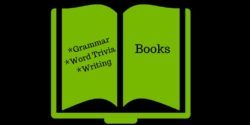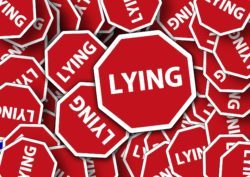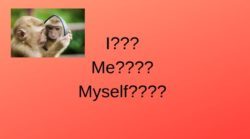Arlene Miller's Blog, page 34
July 5, 2019
A Bad Week for Grammar
Is it just me, or was it a bad week for grammar? (Just me??)
 Image by succo from Pixabay
Image by succo from PixabayIt all started near the beginning of the week when I went to my doctor. She has a new assistant. Now I don’t mind if someone working in a medical environment has a big old tattoo (really, I don’t like them, but I am used to it); long thick, big gel nails with one sparkly one (I don’t mind gel nails or colored polish – I have had such nails myself — but when they are long and thick and not nicely rounded and clean looking, I don’t think they belong in a medial environment); and bad grammar to boot. She was very nice and these things wouldn’t have bothered me if she had been competent and hadn’t torn both my ear canals while “power washing” my ears (ever had that done?). So back to the grammar: first was the “have came.” Then was the double negative: “I don’t want no one to slip on that floor.” Grammar isn’t everything, but when other things are going on too, bad grammar doesn’t help.
Then, of course, there is the usual “I feel badly,” instead of “I feel bad” that everyone says (including a politician very high up). And then there was the person on cable news who said, “. . .the amount of people running,” instead of “the number of people running.”
Then came the most surprising of all. On a radio show I heard someone whom I thought was well spoken. He has become known through his political tweets. I had never noticed anything wrong with his grammar until this week when I heard him say “have tooken.” What????? He also said”could of” that same day. And “like myself” instead of “like me,” but that one isn’t so bad.
The last faux pas I would like to mention is the “I” instead of “me,” which I keep silent about when my friends say it. I know that when you are talking, you don’t stop to take the other person out to see if it makes sense (He gave it to Pete and I; He gave it to I), so just remember — if you might be guilty of this — if you are using “to” or “for” or “with” or “by,” it’s me, not I.
Yup, I know I was supposed to talk about nouns today as the first post in the parts of speech series, but I just had to vent.
June 28, 2019
A Two Parter – What’s Going On? and POS
I have mentioned in my previous posts that I am planning a move to Florida from California. So I feel very much in limbo. I am waiting for my house to sell, so
 Image by FABIANNE SIBBIO from Pixabay
Image by FABIANNE SIBBIO from Pixabayevery time I have something to plan, I say . . .”If I am still here by then…” Actually I thought I would be gone by now, but my house hasn’t sold. I haven’t gotten anything done on my latest book, but I have kept up this blog post (…neither rain nor sleet…) and my social media postings and the little marketing I do.
My house is getting emptier and emptier. I sent 95% of my stuff to Florida two months ago on a truck with my daughter and son-in-law’s things. I am lucky that I don’t have to time a sale and a purchase; I can stay at my daughter and son-in-law’s house when I get to Florida. In fact, they tour for work and will hardly ever be there, so they are happy to have a “house sitter,” even though we all thought I would be there long before now.
So, my closet is nearly empty, actually making clothing choices so much easier every day! I am sleeping on my old mattress on the floor (having sent the rest of the bed to Florida), and that is getting old. And I am getting too old to be able to get up from it. The dog is happy because she can jump onto the bed now; before, it was too high.
For some reason I packed my silverware, which could easily have been replaced with new stuff for not much money. When my daughter was here, right before the truck left with our stuff, she was making herself an English muffin. She asked me,”Where are the knives? I need to spread the butter.” Oh, well, I thought I would do OK with plastic forks and three spoons.
I didn’t send most of my furniture because I am going to sell or donate it. However, I sold my three bookcases to a friend, so those are gone.
Frankly, I love the feeling of a very uncluttered house; I was never a clutterer anyway. I don’t like a lot of stuff around. But this minimalistic look suits me just fine!
So that is where I am right now! I think about moving out and going to Florida before the house sells, but I think, “Who will water the outside plants every day?” They need to be done by hand. And I still would have to pay the mortgage. Bummer!
So here I sit.
***
Among other things, POS stands for parts of speech. This summer I will be doing a series about the parts of speech. Not just what they are — that would be boring — but what some of the major issues with them are.
We all learned about the parts of speech in elementary school. Can you name the eight of them? (I say there are eight. Not everyone agrees) Scroll down for the answers:
noun – person, place, thing, or idea (Joe, children, ice, sky, air, truck, sincerity)
verb – action word or state of being (am, runs, flies, becomes, justifies, thinks)
pronoun – stands in for a noun (he, she, they, myself, them, who, which, everyone)
adjective – modifies or describes a noun or pronoun (pretty, those, five, blue, anxious, the)
adverb – modifies a verb, adjective, or other adverb (slowly, very, now, then, extremely, happily)
preposition – begins a phrase that puts something in a time or place (in, out, above, up, beyond, inside)
conjunction – joins words, phrases, sentences (and, but, or, nor, so, for, yet, although, because)
interjection – conveys emotion (oh, well, gee, darn, rats, OMG)
Quiz of the week: Can you write a sentence using every part of speech only once? An eight-word sentence?
Here is mine. Maybe I could do better if I thought about it longer. I am sure you can do better!
Yikes, and she jumped quickly over the box. (interjection, conjunction, pronoun, verb, adverb, preposition, adjective, noun)
Next Week: An Introduction to Nouns
June 21, 2019
Everything I Ever Learned About Grammar . . .
 Image by newswatch from Pixabay
Image by newswatch from Pixabay. . . I learned from a seventh grade grammar textbook.
. . . when I taught seventh grade English not so long ago.
Yes, I was always good in grammar. And I excelled in Latin, which was a grammar-based class. And my parents, for all their frailties, spoke decently — if good grammar is either inherited or absorbed.
The topic for this post began as a compilation of grammar mistakes I have heard recently on the news, spoken by people you would think would know better. Then I realized that if I hadn’t taught 7th grade English, I probably would be making the same mistakes. Probably. But maybe not.
Yes, I was a journalism major in college, but no grammar was taught as far as I can remember. However, I do recall that anytime I wrote anything for my journalism class, there was a plethora of red on my paper. I went on to be a newspaper reporter for a short while, still writing well enough, perhaps, but not great, grammar-wise or any other -wise.
Then I moved on to technical writing and then technical editing, where I probably began to learn some of the fine points of grammar, possibly using the Chicago Manual for the first time, although I had a copy in college. However, the Chicago Manual isn’t really a grammar book, and I don’t remember ever owning a real grammar reference including The Elements of Style (which I came to late in life).
But then . . . also late in life I got a teaching credential and was introduced to the Holt Handbook, the book my English Department happened to have adopted (and never changed my entire eleven-year teaching career). Who knew there were six types of pronouns? Who knew that predicate nominatives were one of four types of complements? Who knew the true uses for myself?
Now, I did. I knew it all. Enough to write a dozen grammar books since that time and enough to know that this is a sentence fragment (for which we did receive a zero in high school if we had one in an essay).
But if I were a news broadcaster, would I have impeccable grammar — even if I had graduated from an ivy league school?
If I were a senator who had graduated from law school, or the head of a government agency, would I have impeccable speaking grammar?
Are these people always reading from a teleprompter that is written incorrectly? (I don’t know.)
I know many of you are annoyed by the same grammar gaffs that I hear on the news. But before I continue, let me say that I listen to only one news channel, which I will not divulge. It isn’t Fox, and it is one in which most of the people on it have advanced degrees.
Here are some of the grammar goofs I have picked up on in the past few weeks:
Retweeted again – From the department of redundancy
At the same time, simultaneously – Another one from the department of redundancy. I have reason to believe this one was off the cuff and possibly said on purpose for effect.
On the same stage as him – A common goof; it should be On the same stage as he (since there is an is implied – same stage as he is on)
Infer used instead of imply – I was very disappointed when I heard this one. She very obviously meant imply.
It is concerning – Meaning it is worrisome. I hear this one all the time. As far as I know concerning is not an adjective, as it is attempting to be used here. (Concerning is a preposition: I am calling concerning the meeting. Or it is a verb: I am concerned about the weather. Or it is a noun: This issue is of concern to me.)
Myself being used instead of I or me – Myself is appropriate neither as a subject or an object. These are all incorrect: He and myself are going. He talked to Jim and myself. These are correct: I myself will be speaking. I am going myself.
I and me confusion – We are still suffering from the overcorrection of me to I . Sometimes me is correct. Wrong: It is a puzzle to him and I.
Here is or there is or here’s or there’s followed by a plural – The verb in those phrases is singular (is ) and should be followed by something singular: Here is my plan. There is the city on the map. Not: Here’s the names on the list. There’s the locations for the new stores.
Keeping in mind, number 6 above. I recently heard this one: I intend that to be myself. Is that correct, or should it be, I intend that to be me? I really don’t know, and I don’t know how I would even look it up, or if I would find it anywhere. Myself is appropriate when the sentence begins with I because myself is used reflexively (I did it myself – it bounces back to I ) or intensively (I myself did it – it intensifies the I ). In the case of something like I intend to call her, the same construction is used. There is an infinitive ( to and a verb: to call). However, the subject doesn’t match the reflexive pronoun. But you would say I intend to call myself “Joe.” Here the subject ( I ) matches myself . Hmmmm……I think I intend that to be myself is correct, even though it hurt my ears when I heard it. In that case, the person who said it (Kamala Harris) is pretty damn good at grammar!
The Grammar Diva is in limbo waiting for her house to sell so she can move to Florida! I have turned down a speaking engagement, a volunteer job with my writing group, and some editing jobs because I don’t know when I am moving. But I will continue to keep writing this blog and posting on social media! And soon I will get back to my dating memoir . . . and begin my business writing book (and other projects) . . .
Happy Summer from The Grammar Diva!
June 15, 2019
5 Ways to Use Technology to Improve Your Writing Skills
 Image by Welcome to all and thank you for your visit ! ツ from Pixabay
Image by Welcome to all and thank you for your visit ! ツ from PixabayGuest Post by Cathy Baylis:
Even though we might not write by hand as much as we used to a decade or two ago, we still need to communicate effectively and coherently.
Whether you are a blogger, a copywriter, a marketing specialist looking to create a top-notch presentation for your next pitch, or a chief executive officer looking to write your next big contract, you need to have well-developed writing skills.
To improve our skills, we can make use of technology. Software and other products can make our paragraphs flawless — helping us make a great first impression.
Also, apart from checking our writing, technology gives us quicker access to others’ presentations, books, and articles.
Here are five ways to use technology to improve your writing skills.
1. Grammarly
Grammarly is a tool every person looking to write even a few lines should use. Whether you want to write a letter to your friend or create a company presentation, and whether you use your laptop or notebook to write your composition, Grammarly is easily accessible to you: just paste the content inside the app and wait for it to process your text.
Grammarly will highlight the grammar errors in your composition and will offer you error-free alternatives. For example, if you write “this projects” instead of “these projects,” the software will identify the mistake.
A very important feature of this tool is the Grammarly Plug-In, which you can install in your Chrome browser. Then, you won’t even need to copy and paste the text into the tool. The plug-in will always be there waiting and checking your content proactively.
2. Hemingway App
“During my first months of working as a copywriter, I had a very dull writing style. By dull, I don’t want to highlight the fact that my content was just empty words. If you would’ve read an article of mine, you would’ve had to grab a pillow right after the introductory paragraph. That’s because there were endless sentences,” says Diana Brighton, Chief Writing Guru at UK essay writing service.
Basically, what Hemingway does is add musicality and sharpness to your text. It will point out the too- long sentences, the ones you will have to split in two. Next, it will focus on passive voice because it is a very effective sleeping pill for your readers. You don’t want them to fall asleep while reading your articles, do you?
First, use Grammarly to make sure your articles or presentations are flawless, with no grammar mistakes. Then, take your text and put it to the test using the Hemingway App. Are you a real Hemingway or just a wannabe? Do your readers enjoy reading your masterpieces, or do they tend to give up after reading the first paragraphs?
3. Plagiarism Checker
Andrew Garfield, essay reviewer at essay services reviews adds, “We all have our sources of inspiration. It’s impossible to write even a one-thousand-word article without having at least one source of inspiration. When you use this information, it is very important that you mention the original source. Otherwise, you will be a plagiarist and you might be sued for this.”
Right before sending an article to your client or publishing it on your blog, make sure your content is 100 percent original to avoid possible headaches and lawsuits.
If you are a copywriter or working with one, and you want to evaluate the text, make sure to use a plagiarism checker. Sometimes you can plagiarize by accident, using something you don’t remember is “stolen” from somewhere.
4. e-books for the Win
Kids can learn to play a certain game and improve their skills at that game by watching others play. For example, they might watch lots of tutorials or good players live-streaming while they play. There are websites made specifically for this, such as Twitch.
Why couldn’t you learn to improve your writing skills by reading e-books or watching tutorials?
Even if you have to generate content in a foreign language, by reading e-books you can develop your vocabulary and improve your grammar. E-books are often less expensive and faster to get. Basically, you just pay and download the book on your computer, smartphone or Kindle.
You can also watch videos of experts teaching you the art of writing to help you structure your composition and stress the most important aspects you want to deliver to your audience.
5. Blogging Much?
The blogging trend has exploded during the past years. The idea of writing about whatever idea that goes through your head and getting paid for it is brilliant. Thousands and thousands of blogs have appeared during the past years, but it is important to differentiate yourself from the crowd.
If you want to improve your writing skills, blogging is your opportunity. Not only you can improve your skills, but you might also generate some income.
Think about a subject you are passionate about and start doing some research. For example, if you are passionate about cars, find out what information readers want the most. Then write about it. Are the readers interested in which cars are most reliable? information about different engines? bodywork? Write about such topics and post a few articles on your blog.
Out of 7 billion people out there, two-thirds of them are surfing the internet. That’s more than 4 billion and out of them, there will be enough readers for your automotive blog. Once you get your blog going, your writing skills will be improved, and you might be able earn money at the same time.
Writing skills are very important. Whether you write your resume, a company presentation, or your next novel, it is of the utmost importance to have flawless writing skills.
Technology can help you improve these skills. By using tools such as Grammarly, Hemingway, and Plagiarism Checker, you can improve your writing skills from a technical point of view. Then, by reading books about writing, watching instructional videos, and creating a blog of your own, you will be able to put in practice the theoretical aspects learned while using these tools.
The next time you want to write anything, make sure you keep these five aspects in mind. Don’t forget, good writing is one of the most important skills a person can have.

Cathy Baylis is a freelance content writer at Essayuniverse.net specializing in career growth, leadership and education. She loves sharing her interests with readers, and she has something to say, for sure.
June 6, 2019
Bite Size Book Reviews for Writers, Word Nerds, and Grammar Lovers: Part 2
 I present to you the second and final installment of bite-sized book reviews for word lovers:
I present to you the second and final installment of bite-sized book reviews for word lovers:
Dreyer’s English: An Utterly Correct Guide to Clarity and Style – Benjamin Dryer. This is a new book that has been getting (or was getting a couple of months ago, probably aligning with his book tour) a ton of media coverage. Mr. Dryer is a grammar maven, being vice president, executive managing editor, and copy chief of Random House. The hype is well deserved, and every grammarphile should read this book. I was most impressed when I saw that he covered similar topics in his book as I in my Best Little Grammar Book. In addition, he agreed with me most of the time, and I even thought we had similar senses of humor in our writing. I was going to write to him and let him know this, but . . . Highly Recommended
Word by Word: The Secret Life of Dictionaries – Kory Stamper. I really didn’t think I would enjoy this book when I started it. It seemed like a boring topic: how the dictionary is created and updated. Was I wrong! I was fascinated with how dictionaries are updated, how word origins are figured out, and how words are chosen to be added. The book takes place more in the recent past before everything was done online. Stamper worked for Webster, I believe. Highly Recommended
The Elements of Style (1918) – William Strunk, Jr. This little book used to be called Strunk and White (yes, E.B.), and I don’t know what happened to White; he doesn’t seem to be getting author billing. Written in 1918 for Strunk’s college class, this has been THE grammar reference book for decades. I actually never owned it and never read it (as far as I can remember) until a few years ago when I bought it at my local library’s book sale. A little dry??? Yup. I can’t really criticize the content (since I don’t remember anything I might have found), but the presentation is pretty boring. My yellow books covers the same things, I hope in a more interesting way. MEH
On Writing Well: The Classic Gide to Writing Nonfiction – William Zinsser. As The Elements of Style is often considered the bible of grammar reference books, this book is often considered the bible of writing books. It is really difficult to teach writing or to even talk about what good writing is. Zinsser does a great job, and this is a worthy book (in my opinion and the opinion of many others). Zinsser wrote for the New York Herald Tribune and has taught writing at Yale and the Columbia University School of Journalism. Recommended
May We Borrow Your Language? How English Steals Words From All Over the World – Philip Gooden. This book sounded so interesting. It was soooo boring. I did not finish it. Each page or so talks about a specific word and its origin. I am sure some people liked it. I thought it was a snooze.
Bird by Bird: Some Instructions on Writing and Life – Anne Lamott. Goodreads doesn’t list this as I book I claimed to have read, but I know I read it and I enjoyed it. This is one of the popular books for learning the craft of writing. Lamott is a popular author who lives in Marin County California. Recommended
On Writing: A Memoir Of The Craft – Stephen King. This book is another popular book for writers studying the craft of writing. It is part memoir and part instruction. Once again, I know I read it, but I have no proof! I am not really a Stephen King fan (the two I read, I liked, but they weren’t the creepy ones), but you don’t have to be a King fan to like this book. Recommended
Verbatim: From the bawdy to the sublime, the best writing on language for word lovers, grammar mavens, and armchair linguists – Erin McKean (editor) – Verbatim was a language quarterly that is no longer in existence. It published amusing and entertaining essays on the English language. This book is a collection of essays from the journal over approximately the past three decades. You will probably love some of the essays and be bored by others. I ended up reading the articles that interested me. I was teaching at the time I read the book, so by far my favorite part was an essay crafted by putting together real bloopers from students’ essays. Recommended
No Plot? No Problem! Revised and Expanded Edition: A Low-stress, High-velocity Guide to Writing a Novel in 30 Days – Chris Baty. This book was specifically written for those who wish to take on the challenge of NaNoWriMo, National Novel Writing Month, which takes place each November. The aim is to write a novel (draft) in 30 days. They say there are two ways to write a novel: 1. Plan it and outline it. 2.Pants it. It will write itself, hence the title of the book. A must read for NaNoWriMo writers!
If you have additional books you have read and would like to recommend — or not — please sent them as comments. I know I have barely touched the surface! Thanks!
May 31, 2019
Bite Size Book Reviews for Word and Grammar Lovers: Part 1
I know it won’t surprise you when I tell you I am a reader. And if you read this blog post, chances are you love to read as well. I read both fiction and nonfiction, but  generally prefer books that entertain me rather than tax my brain. Do I read other writers’ grammar books? Sometimes. I have read my share of “humorous” grammar and punctuation books. books about writing, and books about words. This blog post tells you about some of those books — some I liked, some I didn’t — and next week I will tell you about the others.
generally prefer books that entertain me rather than tax my brain. Do I read other writers’ grammar books? Sometimes. I have read my share of “humorous” grammar and punctuation books. books about writing, and books about words. This blog post tells you about some of those books — some I liked, some I didn’t — and next week I will tell you about the others.
Between You & Me: Confessions of a Comma Queen – Mary Norris – Ms. Morris has great credentials. She began working at The New Yorker in 1978. Her book got a fair amount of publicity, and I was sure I would love it. What could be more fun than commas! I see that I gave it three stars on Goodreads, and I remember not being impressed. I thought I would enjoy this book more than I did. According to my short review on Goodreads, I found it tedious and I skimmed through parts. Cleverly written, but I didn’t really enjoy it. It does have four stars on Amazon. To each “their” own.
Eats, Shoots & Leaves: The Zero Tolerance Approach to Punctuation – Lynne Truss – I am not sure I had even heard about this famous book when I saw Ms. Truss on the CSpan book channel (does that still exist?). She really impressed me during that interview. I was excited about the book. Great title, but she was much more impressive, in my opinion, than the book was, not that I remember it well. I tend to forget books and movies immediately unless I am really impressed.
The Transitive Vampire: A Handbook of Grammar for the Innocent, the Eager and the Doomed – Karen Elizabeth Gordon – Another “humorous” grammar book that falls into the pile of “I don’t really remember it, but it didn’t live up to its great title.” It was a gift to me from another word person, and I had heard of it, so I was anxious to read it. Meh!
Woe Is I:The Grammarphobe’s Guide to Better English in Plain English – Patricia T. O’Conner – Okay. Even though I don’t remember its specifics, I gave it 5 stars and a short but good review; I said that I learned a few new things. Recommended.
The Gregg Reference Manual: A Manual of Style, Grammar, Usage, and Formatting – William A. Sabin – When people ask me a grammar question, I sometimes look online to see what I can find. I also head to this book. I use this book to guide my own grammar books. I have an old, spiral bound edition. I don’t know where I got it, but I love it. If you need a grammar book that is more “referency” than mine — and more comprehensive — try Gregg. Highly Recommended.
Grammar Girl – Don’t get Mignon Fogarty, known as The Grammar Girl, confused with me, The Grammar Diva. Mignon is far more famous than I, having appeared on Oprah (I think) and the Today Show, among many others. She has been around (even though she is younger) the grammar world longer than I. She has several books, her Quick and Dirty Tricks the most well-known. It is like mine in its size and coverage of grammar. She also has a famous podcast (I don’t know if she is doing it any longer) and a website with lots of sponsors and things besides grammar on it. And she really knows her stuff! I often refer to her book (I own one) when I have a question about something fairly obscure. Sometimes it is there. Most times, it isn’t because it isn’t really a think anyone writes about. Recommended (even though I consider her my main competition).
Chicago Manual of Style – The first time I laid eyes on this tome was in college, since I was a journalism major. The other tome we had was Words Into Type, which covered more graphically oriented issues. I probably still have the same copy of the Chicago Manual. Well, maybe I have a newer copy. Of course, it is the leading style manual of editors. I will say that it is a style guide and not really a grammar book; that said, I don’t know if I have ever been able to find one thing I was looking for in that index. I just don’t like that book. There are other style guides (AP, MLA, etc.), and if you are working for someone, they may ask you to use a certain one. But the Chicago Manual is the gold standard. Yuck.
Wordstruck!: The Fun and Fascination of Language – Susanna Janssen – I must admit I have read only half of my signed copy of this book. It was written by a local (Mendocino County, I believe) author, who is a a foreign language instructor. I heard her speak at my writing club. She is wonderful! And so is the book. She overlaps some of my topics when I speak, namely, word trivia. But she also delves into cultures, since that is her speciality. You will learn a lot and be very entertained. Highly Recommended.
My books – Well, you don’t think I would neglect my very own books, of which there are now about a dozen: Two basic grammar books (one with two editions), two workbooks, a confusing words book, a book of blog posts, a short grammar guidebook, a lesson plan book, a collection of three of my books…did I forget anything? Well, I do also have a novel and a self-publishing how-to book. I took that one off the market when things at Amazon changed so much. You can find my books at Amazon and all other online bookstores, and you can order them from any brick and mortar bookstore. Some libraries have it, as well as my local indie bookstore Copperfield’s. You can take a look at them on Amazon, where I have some good reviews and some….not so good, as do most books. Unfortunately, it isn’t so easy to get any reviews these days. And some of the best words about my books come from people who have blurbs on my covers and who send me nice e-mails. My books are also available in PDF form on a teacher site, Teachers Pay Teachers, where my reviews are much more excellent! My big workbook and yellow reference book are being used by many schools.
Stay tuned. Next week: more great — and not so great — books.
Bite Size Book Reviews for Word/Grammar Lovers: Part 1
I know it won’t surprise you when I tell you I am a reader. And if you read this blog post, chances are you love to read as well. I read both fiction and nonfiction, but  generally prefer books that entertain me rather than tax my brain. Do I read other writers’ grammar books? Sometimes. I have read my share of “humorous” grammar and punctuation books. books about writing, and books about words. This blog post tells you about some of those books — some I liked, some I didn’t — and next week I will tell you about the others.
generally prefer books that entertain me rather than tax my brain. Do I read other writers’ grammar books? Sometimes. I have read my share of “humorous” grammar and punctuation books. books about writing, and books about words. This blog post tells you about some of those books — some I liked, some I didn’t — and next week I will tell you about the others.
Between You & Me: Confessions of a Comma Queen – Mary Norris – Ms. Morris has great credentials. She began working at The New Yorker in 1978. Her book got a fair amount of publicity, and I was sure I would love it. What could be more fun than commas! I see that I gave it three stars on Goodreads, and I remember not being impressed. I thought I would enjoy this book more than I did. According to my short review on Goodreads, I found it tedious and I skimmed through parts. Cleverly written, but I didn’t really enjoy it. It does have four stars on Amazon. To each “their” own.
Eats, Shoots & Leaves: The Zero Tolerance Approach to Punctuation – Lynne Truss – I am not sure I had even heard about this famous book when I saw Ms. Truss on the CSpan book channel (does that still exist?). She really impressed me during that interview. I was excited about the book. Great title, but she was much more impressive, in my opinion, than the book was, not that I remember it well. I tend to forget books and movies immediately unless I am really impressed.
The Transitive Vampire: A Handbook of Grammar for the Innocent, the Eager and the Doomed – Karen Elizabeth Gordon – Another “humorous” grammar book that falls into the pile of “I don’t really remember it, but it didn’t live up to its great title.” It was a gift to me from another word person, and I had heard of it, so I was anxious to read it. Meh!
Woe Is I:The Grammarphobe’s Guide to Better English in Plain English – Patricia T. O’Conner – Okay. Even though I don’t remember its specifics, I gave it 5 stars and a short but good review; I said that I learned a few new things. Recommended.
The Gregg Reference Manual: A Manual of Style, Grammar, Usage, and Formatting – William A. Sabin – When people ask me a grammar question, I sometimes look online to see what I can find. I also head to this book. I use this book to guide my own grammar books. I have an old, spiral bound edition. I don’t know where I got it, but I love it. If you need a grammar book that is more “referency” than mine — and more comprehensive — try Gregg. Highly Recommended.
Grammar Girl – Don’t get Mignon Fogarty, known as The Grammar Girl, confused with me, The Grammar Diva. Mignon is far more famous than I, having appeared on Oprah (I think) and the Today Show, among many others. She has been around (even though she is younger) the grammar world longer than I. She has several books, her Quick and Dirty Tricks the most well-known. It is like mine in its size and coverage of grammar. She also has a famous podcast (I don’t know if she is doing it any longer) and a website with lots of sponsors and things besides grammar on it. And she really knows her stuff! I often refer to her book (I own one) when I have a question about something fairly obscure. Sometimes it is there. Most times, it isn’t because it isn’t really a think anyone writes about. Recommended (even though I consider her my main competition).
Chicago Manual of Style – The first time I laid eyes on this tome was in college, since I was a journalism major. The other tome we had was Words Into Type, which covered more graphically oriented issues. I probably still have the same copy of the Chicago Manual. Well, maybe I have a newer copy. Of course, it is the leading style manual of editors. I will say that it is a style guide and not really a grammar book; that said, I don’t know if I have ever been able to find one thing I was looking for in that index. I just don’t like that book. There are other style guides (AP, MLA, etc.), and if you are working for someone, they may ask you to use a certain one. But the Chicago Manual is the gold standard. Yuck.
Wordstruck!: The Fun and Fascination of Language – Susanna Janssen – I must admit I have read only half of my signed copy of this book. It was written by a local (Mendocino County, I believe) author, who is a a foreign language instructor. I heard her speak at my writing club. She is wonderful! And so is the book. She overlaps some of my topics when I speak, namely, word trivia. But she also delves into cultures, since that is her speciality. You will learn a lot and be very entertained. Highly Recommended.
My books – Well, you don’t think I would neglect my very own books, of which there are now about a dozen: Two basic grammar books (one with two editions), two workbooks, a confusing words book, a book of blog posts, a short grammar guidebook, a lesson plan book, a collection of three of my books…did I forget anything? Well, I do also have a novel and a self-publishing how-to book. I took that one off the market when things at Amazon changed so much. You can find my books at Amazon and all other online bookstores, and you can order them from any brick and mortar bookstore. Some libraries have it, as well as my local indie bookstore Copperfield’s. You can take a look at them on Amazon, where I have some good reviews and some….not so good, as do most books. Unfortunately, it isn’t so easy to get any reviews these days. And some of the best words about my books come from people who have blurbs on my covers and who send me nice e-mails. My books are also available in PDF form on a teacher site, Teachers Pay Teachers, where my reviews are much more excellent! My big workbook and yellow reference book are being used by many schools.
Stay tuned. Next week: more great — and not so great — books.
May 24, 2019
“Lay Lady Lay” – Or Is It “Lie”?
What if Bob Dylan had sung “Lie Lady Lie”? Or Eric Clapton had sung “Lie Down Sally”? Or the Backstreet Boys had sung “Lie Down Beside Me”? Well, they
 Image by Gerd Altmann from Pixabay
Image by Gerd Altmann from Pixabaywould have been grammatically correct. And maybe if we had first heard the songs that way, they wouldn’t sound so weird. Did the songwriters know they were making a grammatical error? Did they care? Did they think about it and use what sounded better?
Who knows? But after reading this blog post, you will know which to use, and not only in the present tense, but in the past and present perfect tenses as well. Not that anyone uses lie in the present perfect . . .
The main distinction between lie and lay is that lie is intransitive in grammar speak, and lay is transitive. So lie does not take a direct object (a receiver of the action), but lay does. In other words, you must lay something. Here are some examples of correct uses of lay and lie. Note that animals and things can also lie, not just people:
I think I will lie down.
She is lying in the sun.
The dog always lies on that blanket.
I like to collect the shells that lie on the beach.
Lay your head on my shoulder. (Lay what? Lay your head.)
You can lay your purse on the table. (Lay what? Lay your purse.)
Every time he comes over he lays himself on the hammock. (Lays what? – who? in this case – Lays himself.)
Lay those books on my desk. (Lay what? Lay those books.)
So you get the idea. You don’t lay down. You lie down.
It gets a little trickier in the past tense:
The past tense of lie is lay.
The past tense of lay is laid, which makes more sense.
Here are some examples of correct past tense:
Yesterday, I lay on the sofa all day. (not laid)
She visited last week, and lay out in the sun most of the time. (not laid)
He laid the cookies on the table.
I laid the pumpkin on the floor, so we could carve it.
The present perfect tense is the one with the helping verb has or have.
The present perfect (also called past participle) of lie is lain — the one no one knows what to do with!
The present perfect (also called past participle) of lay is laid, just like the past tense: easy.
Here are some examples of correct perfect tenses:
I have lain out in the sun all day and have a sunburn.
Those rocks have lain in that pile for months.
Soon she will have lain in that bath so long, she will look like a prune.
I have laid all my cards on the table.
We have laid tile before, so we can help you.
So . . .
It is lie, lay, have lain
It is lay, laid, have laid
Be sure to catch my “ditty of the day” on social media if you follow me – every day I post on Twitter, Pinterest, LinkedIn, and Facebook (personal and business). I change it up every month. This month I have been posting a comma rule every day. Next month I will be posting words that begin with — oh, I don’t want to give it away!
May 13, 2019
Me, Myself, and I Revisited
Someone mentioned to me recently that they were being driven crazy by the incorrect use of the pronoun myself. So, when I was looking for a topic for this week’s  post . . .
post . . .
This post is an old one that was run a few years ago, but I have edited it and rewritten parts of it to reflect my improved mastery of grammar 
May 10, 2019
Grammar Wives’ Tales: Rules You Can Break
 Image by Gerd Altmann from Pixabay
Image by Gerd Altmann from PixabayYou can’t end a sentence with a preposition.
You can’t begin a sentence with a conjunction.
You can’t split an infinitive.
Yes, you can.
Yes, you can.
Yes, you can.
I don’t know whether you would really want to call them wives’ tales, but there are some grammar “rules” that are going by the wayside. But lest you think that now anything goes . . . these rules are few and far between.
I will begin with this caveat: Yes, a few “rules” have become less strict. However, bending the rules applies mostly to those who are writing fiction or creative nonfiction. And bending the rules always applies to those who know the rules. Moreover, if I were writing a business letter asking for a job, or a letter applying to college, I would take the conservative route and not bend the rules.
Most grammar and punctuation rules you wouldn’t think of breaking:
You wouldn’t leave off the ending quotes in a quotation because you felt like it – She said, “It is nice out today.
You wouldn’t write using a misplaced modifier – Reading a book by the window, the cat stretched.
You wouldn’t put a colon at the end of a question – What are you doing:
You wouldn’t use the wrong verb form (unless where appropriate in dialog) – He work yesterday. I seen a ghost last night.
You wouldn’t leave out the comma in a date: I was born on March 3 1986.
You wouldn’t begin a sentence with a lowercase letter. three dogs sat on the porch.
But there are some rules that are flexible if you bend them for a reason.
You can end a sentence with a preposition. Sometimes it sounds awkward not to: Whom is the gift for? For whom is the gift?
You can start a sentence with a conjunction if you think it makes sense to: He heard a noise in the closet. And then he carefully opened the door.
You can split an infinitive, although they are generally split by adverbs, and adverbs are out of style: He asked me to slowly shut the door.
You can use or not use the Oxford (series) comma. However, be consistent in its use in the same piece of writing: I have applies, pears, and peaches. I have apples, pears and peaches. (I always use it and advise others to use it too.)
You can take some liberty with your use of commas – sometimes: Of course, I want to go with you. Of course I want to go with you. He told us sadly that he had lost his job. He told us, sadly, that he had lost his job. (used here for emphasis)
You can take some liberty in your use of the ellipsis, which is supposed to be used to either indicate trailing off at the end of the sentence or indicate missing words. However, you can sometimes use it to slow down tempo. She saw him . . . she slowly approached him . . . she tried to speak to him. You could use periods or dashes, but ellipses seem to work here.
You can sometimes use sentence fragments for effect. They are often used in promotional writing. She prepared a special cake for him, which took her all day to make. So much effort for nothing.
Run on sentences – or comma splices – are a different story. Many writers use them. I don’t, and I won’t. Oh, maybe for fiction I would in the right circumstances. She spilled all the jellybeans, she tried to pick them up, she ended up hiding them under the rug. Please remember that you can’t really connect sentences with then; it is not a conjunction and results in a comma splice (that hardly anyone will notice). She spilled all the jellybeans, then she tried to pick them up.
You can (and probably should at this point) use the singular they. I have up to this point refused, but using he or she instead sometimes isn’t even accurate anymore. The best way to deal with the singular they is to rewrite the sentence to avoid the issue, which generally can be done easily: Everyone should bring his or her towel. Everyone should bring their towel (singular they; I still don’t like it). Everyone should bring a towel. (easy workaround)
You might wonder why I haven’t had much Grammar Diva News lately. It’s because I haven’t had much Grammar Diva news lately! I have a draft written of my latest book (memoir) and plans to write a business-writing book next year. However, I am in the midst of selling my house and moving cross country (to be near my daughter), so I haven’t had the time or the brainpower to do much except my blog posts! When I am settled, I will be back to work in ernest again!



